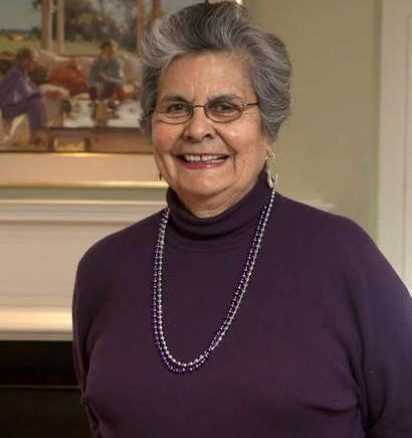
- Details
- By Native News Online Staff
MADISON, Wisc. — Ada Deer, who served as the assistant secretary of the Department of the Interior–Indian Affairs, has been given a prestigious award that honors the late Reverend Dr. Martin Luther King, Jr.
Deer was given the City-County Humanitarian Award by the city of Madison, Wisconsin and county of Dane at the annual City-County Martin Luther King, Jr. Observance on Monday, Jan. 20, at the Overture Center Capitol Theater, 201 State Street in Madison.
“Ada Deer has been a leader and mentor to thousands of Wisconsinites for many years. She is a true inspiration,” said Madison Mayor Satya Rhodes-Conway in a statement released last Friday.
Deer grew up in poverty on the Menominee Indian Reservation in Wisconsin. She received a bachelor’s degree in social work from the University of Wisconsin-Madison and a master’s degree in social work from Columbia University School of Social Work.
In 1971, she became the first woman to serve as chair of the Menominee Tribe of Wisconsin. Her strong persistence helped the tribe regain its federal recognition during her tenure as chairperson of the Menominee Tribe.
After the election of President Bill Clinton, she applied to be the assistant secretary of the Department of the Interior. She was nominated for that position by President Clinton and confirmed by the U.S. Senate. She is proud that she helped get 226 Alaskan Native villages, as well as American Indian tribes in California and Michigan receive federal recognition during the time she served as assistant secretary.
Deer’s autobiography, Making a Difference: My Fight for Native Rights and Social Justice, was released in late 2019.
More Stories Like This
Native News Weekly (August 25, 2024): D.C. BriefsUS Presidents in Their Own Words Concerning American Indians
Two Murdered on Colville Indian Reservation
NDAA passes House; Lumbee Fairness Act Advances
NFL, Vikings to Host Native All-American Game, Youth Flag Clinic
Help us defend tribal sovereignty.
At Native News Online, our mission is rooted in telling the stories that strengthen sovereignty and uplift Indigenous voices — not just at year’s end, but every single day.
Because of your generosity last year, we were able to keep our reporters on the ground in tribal communities, at national gatherings and in the halls of Congress — covering the issues that matter most to Indian Country: sovereignty, culture, education, health and economic opportunity.
That support sustained us through a tough year in 2025. Now, as we look to the year ahead, we need your help right now to ensure warrior journalism remains strong — reporting that defends tribal sovereignty, amplifies Native truth, and holds power accountable.
 The stakes couldn't be higher. Your support keeps Native voices heard, Native stories told and Native sovereignty defended.
The stakes couldn't be higher. Your support keeps Native voices heard, Native stories told and Native sovereignty defended.
Stand with Warrior Journalism today.
Levi Rickert (Potawatomi), Editor & Publisher

